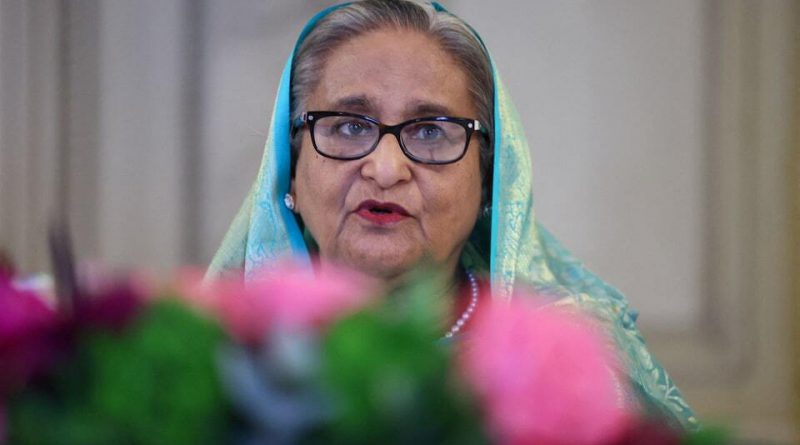Bangladesh Tense Ahead of Verdict in Trial of Former Prime Minister Hasina
Dhaka – Tension in Bangladesh has deepened as the country awaits the upcoming verdict in the trial of former Prime Minister Sheikh Hasina. The situation intensified on Thursday night after two crude bombs exploded near Dhaka’s main airport.
Authorities confirmed that the explosions caused no casualties. However, the incident added to an atmosphere of fear that has gripped the capital following several days of political unrest and violent disruptions.
Sheikh Hasina, aged 78, is currently on trial in a domestic war crimes case. She faces charges related to alleged crimes against humanity tied to the government’s response to student-led protests in mid-2024.
The former leader has been living in India since August of last year. She left the country after being removed from power during a period of intense political upheaval and mass demonstrations.
The verdict in her case is scheduled for Monday. Officials and residents fear that the announcement may trigger a fresh wave of unrest, regardless of the outcome.
Dhaka has experienced a marked increase in attacks during the buildup to the verdict. Authorities reported that on November 12 alone, more than 30 crude bombs exploded across the capital and nearby districts.
In addition to the bombings, dozens of buses were set on fire on the same day. The attacks forced authorities to heighten patrols and impose strict security measures across key locations.
Police have detained numerous supporters of Hasina’s political party, the Awami League. Officials say the arrests were made on allegations of involvement in arson, explosions, and widespread acts of sabotage.
One of the targeted locations was a local branch of Grameen Bank. The institution gained renewed visibility after the appointment of its founder, Muhammad Yunus, as the head of the interim government.
A train carriage stationed at Dhaka’s central railway terminal was also burned. Images of the incident spread quickly across local media, further heightening public concern about the escalating violence.
The police and auxiliary forces have been placed on high alert. Security officials said they are working around the clock to prevent further attacks and disrupt planned acts of unrest.
Authorities have increased checkpoints on major routes entering Dhaka. Commuters have experienced long delays as officers conduct searches of vehicles and passenger belongings.
The city’s administration has announced restrictions on public gatherings until further notice. Events involving large crowds have been suspended due to the risk of coordinated attacks.
More than 400 personnel from the Border Guard Bangladesh have been deployed across the capital. Their presence is intended to support local police and ensure rapid response capabilities.
Residents of Dhaka say the atmosphere feels increasingly unstable. Many people have reduced non-essential travel and remain indoors after sunset due to safety concerns.
Businesses have also been affected by the unrest. Shops in several commercial districts closed early this week, citing fears of property damage and potential clashes.
Analysts say the situation reflects the broader political divide that has shaped Bangladesh’s recent history. Hasina’s long tenure in power and her abrupt removal have contributed to competing narratives about accountability and justice.
Observers note that uncertainty over the upcoming verdict is fueling tension. Supporters of the former prime minister maintain that the charges are politically motivated, while critics argue that accountability is necessary.
Human rights groups have expressed concern about the rise in violent incidents. They have urged authorities to ensure that security measures respect civil liberties while maintaining public safety.
The interim government has urged the public to remain calm in the days leading up to the verdict. Officials say they are prepared for any scenario and are coordinating closely with security agencies.
As Monday approaches, Dhaka remains on edge. The city continues to brace for possible unrest, even as security forces intensify efforts to stabilize the situation.
For now, residents wait for the court’s decision in one of the most closely watched legal cases in Bangladesh’s recent political history.
The outcome is expected to have lasting implications for the country’s political landscape and public order.



